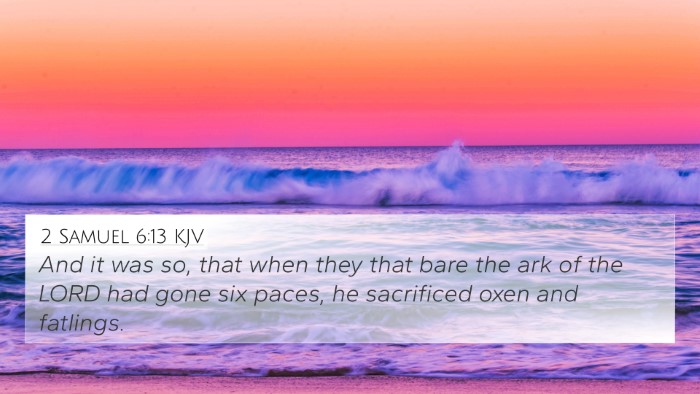Understanding 1 Samuel 15:9
Verse: "But Saul and the people spared Agag, and the best of the sheep, and of the oxen, and of the fatlings, and the lambs, and all that was good, and would not utterly destroy them: but every thing that was vile and refuse, that they destroyed utterly."
Summary of Meaning
This verse highlights Saul's disobedience to God's command through the prophet Samuel. Saul was instructed to completely destroy the Amalekites and all they possessed as a divine judgment; however, he allowed Agag the king to live and spared the best livestock. This action demonstrates a critical lesson about obedience and the dangers of partial compliance with God's directives.
Insights from Commentaries
- Matthew Henry: Henry emphasizes that Saul’s choice to spare Agag and the best of the flock represents a serious flaw in judgment. He argues that Saul’s decision stemmed from a mistaken notion of piety, thinking he could offer the spared animals as sacrifices to God. This indicates how humans often rationalize disobedience.
- Albert Barnes: Barnes points out that Saul's actions were a direct violation of a divine command. While Saul had the intention of pleasing God superficially, true obedience requires complete adherence to God's will. This verse serves as a stern warning against selective obedience and the consequences that follow.
- Adam Clarke: Clarke remarks on the significance of the actions of the people surrounding Saul. He notes that peer pressure and collective decision-making can influence one's obedience to God. The people's desire to keep the best livestock showcases a common human tendency to value material possessions over divine will.
Thematic Connections
The themes presented in this verse resonate throughout the Scriptures, particularly regarding the importance of obedience to God. Below are some significant themes and connections:
- Obedience vs. Sacrifice: This theme is echoed in 1 Samuel 15:22, where it states that obedience is better than sacrifice.
- Divine Judgment: Reference to the divine judgment can be found in Exodus 17:14, which speaks of God's command to blot out the memory of Amalek.
- Leadership and Accountability: Saul's leadership is comparable to that of Moses in Exodus 32:30-32, where leaders must make tough decisions and bear responsibility for their people.
- Sparing the Wicked: The sentiment of sparing the wicked parallels Lamentations 3:39, which contemplates the consequences of sin.
- Consequences of Sin: This theme reverberates through Romans 6:23, where the wages of sin are death.
- God’s Sovereignty in Judgment: See Psalm 7:11, affirming that God is angry with the wicked every day.
- Desire for Control: Romans 7:15 depicts the struggle against sin, similar to Saul's internal conflict.
Cross-References for 1 Samuel 15:9
Below are relevant Bible verse cross-references that provide additional insights into the themes and teachings within< 1 Samuel 15:9:
- 1 Samuel 15:22-23 - Emphasizes the significance of following God's commands over sacrifices.
- Exodus 17:14 - God's command regarding the Amalekites serves as a backdrop for Saul's disobedience.
- Proverbs 28:9 - The implications of ignoring God's counsel and prayers.
- Galatians 1:10 - Discusses the concept of pleasing God vs. man, pertinent to Saul's choice.
- Isaiah 1:11-14 - God’s disdain for insincere offerings aligns well with Saul’s misguided intentions.
- James 1:22 - A call to be doers of the Word rather than merely hearers, relating back to Saul's failure.
- 1 Peter 1:17 - Implications of judgment that connect to Saul’s situation.
Conclusion
In conclusion, 1 Samuel 15:9 is a powerful reminder of the importance of total obedience to God's will. Saul's experience acts as a cautionary tale about the consequences of selective adherence to divine commands. Through a careful examination of this verse and its connections to the wider Biblical narrative, one can grasp the fundamental principles of faithfulness, the dangers of human reasoning in matters of obedience, and the necessity of aligning one's desires with God's directives.
Further Study and Tools
For those interested in exploring cross-references and deeper study of the Bible, consider the following tools:
- Bible Concordance: A tool to locate verses by keywords.
- Bible Cross-reference Guide: Provides tools for identifying connections between scriptures.
- Bible Chain References: A method of linking verses by themes or concepts.
- Cross-reference Bible Study Methods: Strategies for in-depth study and interpretation.







